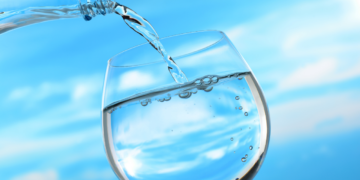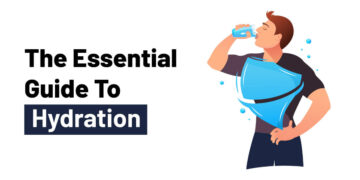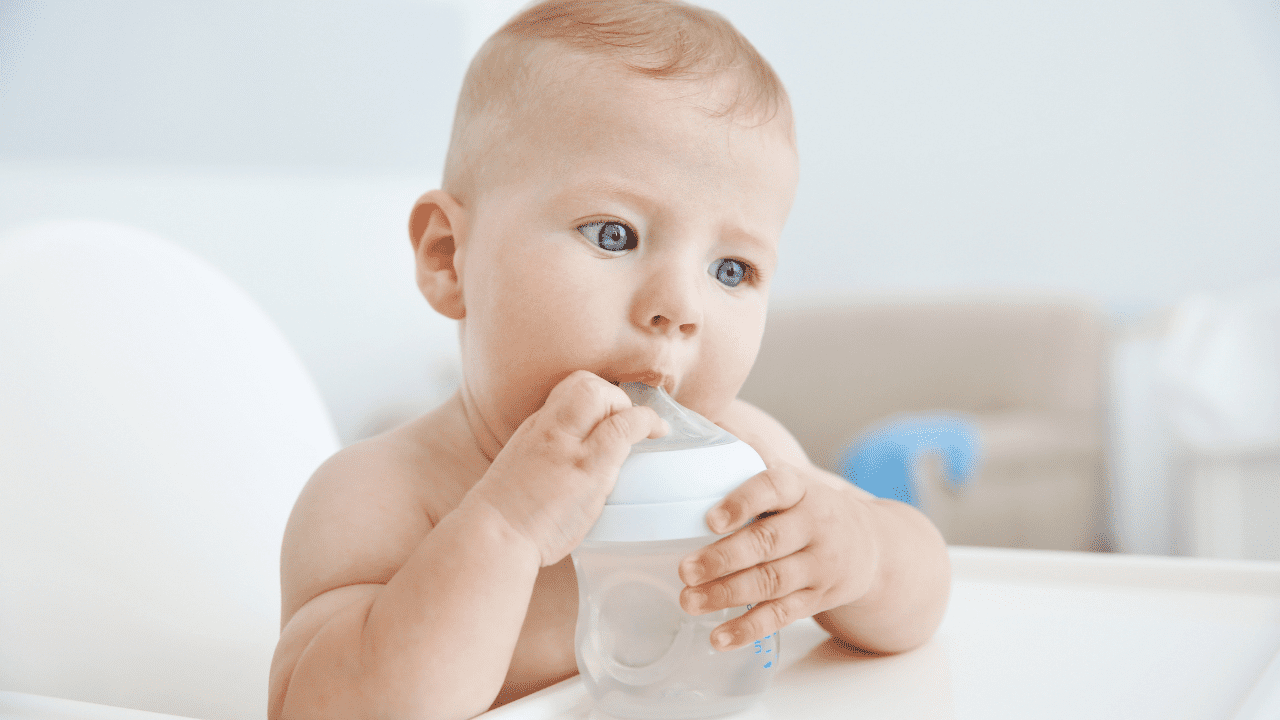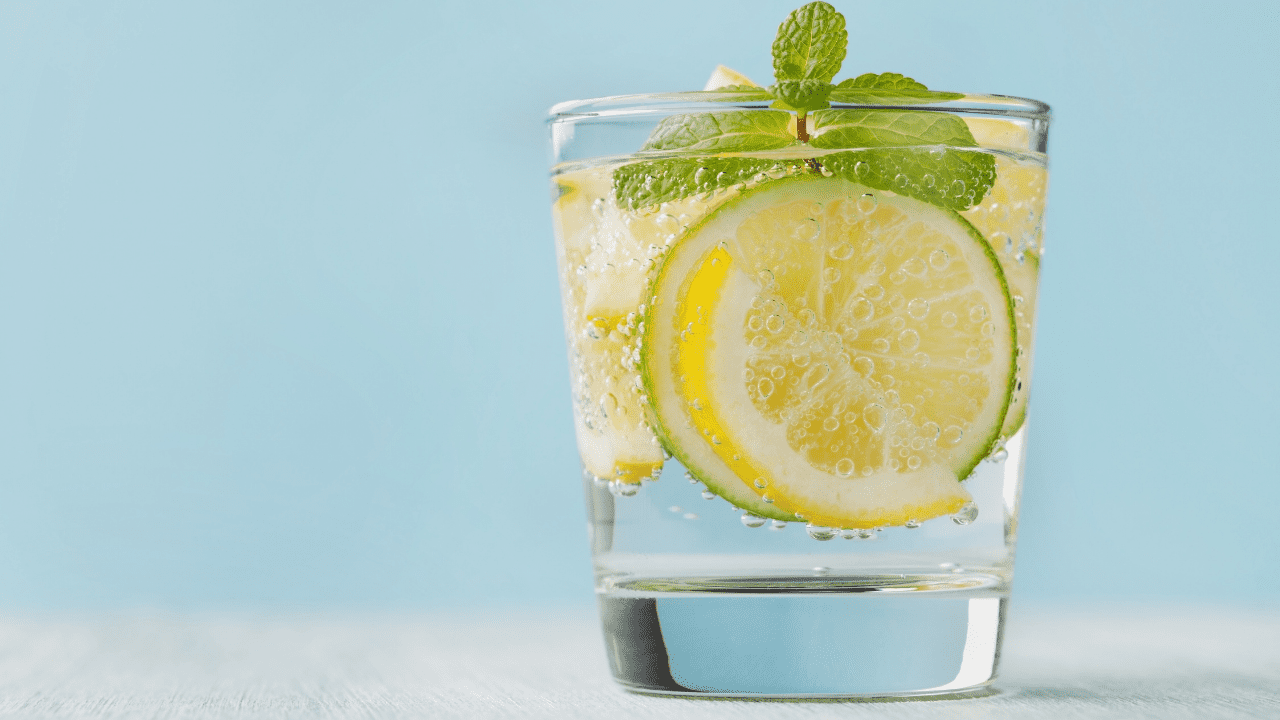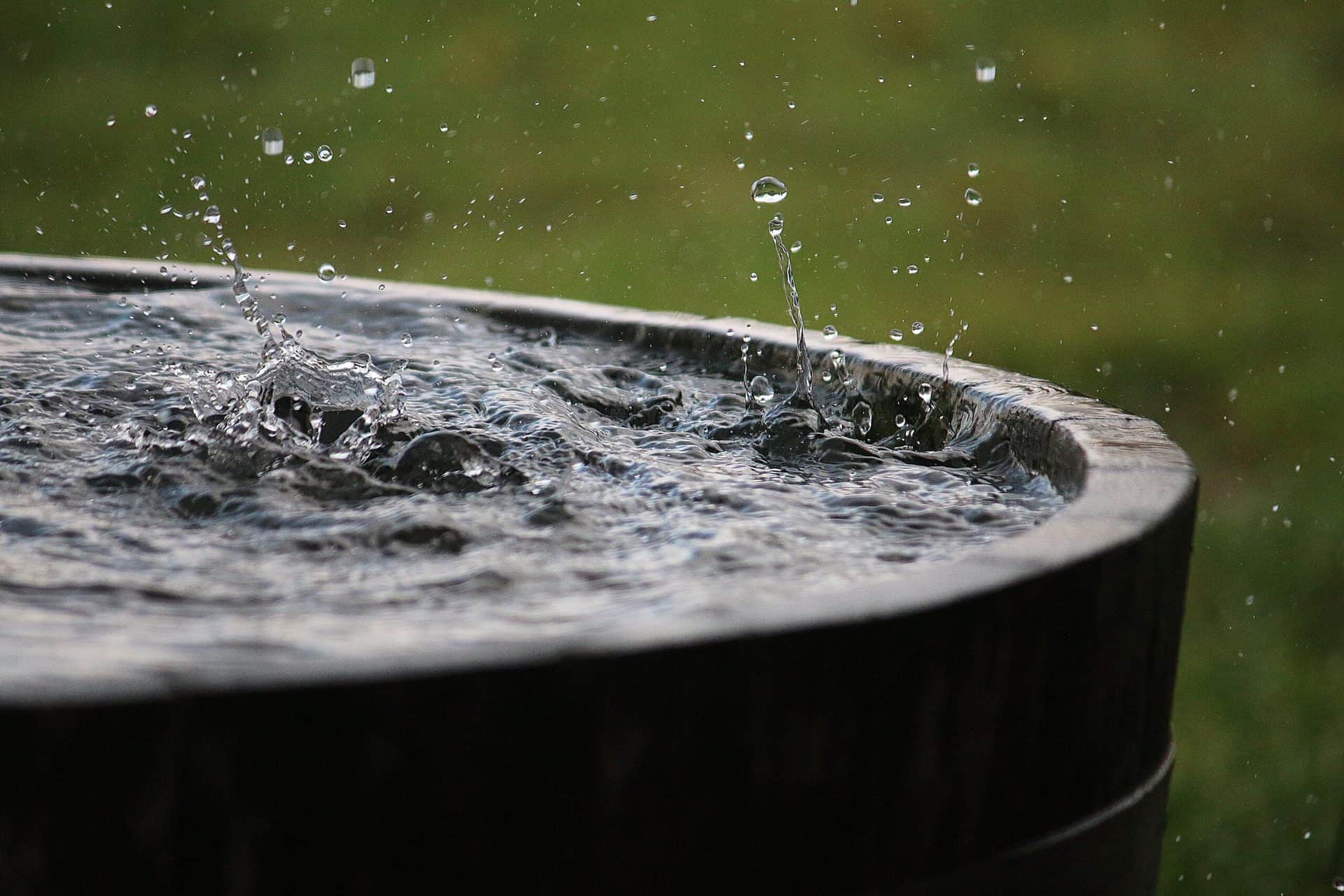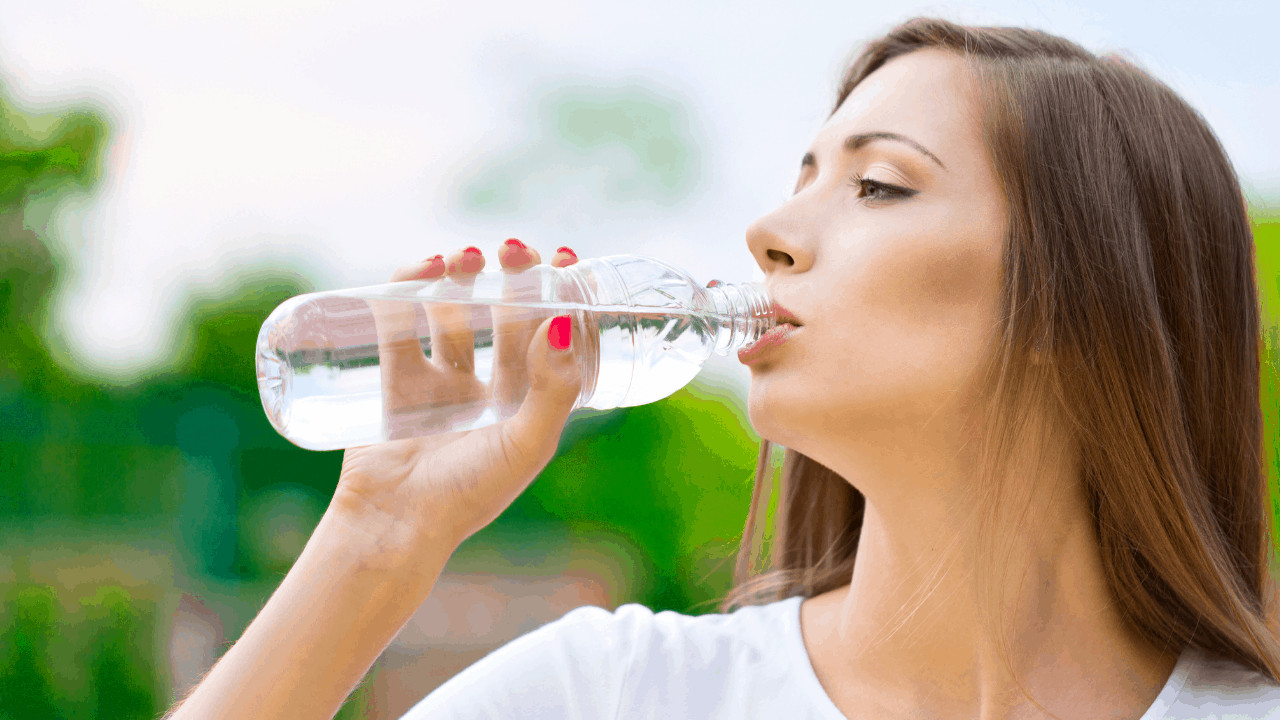Whether you’ve just bought a new salt-based water softener or have been using one for years, you will know that they require the use of salt to soften your home’s water supply. The trouble is, there are many different types of salt on the market which can lead to confusion with water softener owners over which is the right type for their system.
Luckily, there is a strong general consensus surrounding the type of salt products that should be utilized within your water softener – and so in this guide, we’re going to tell you exactly what you should be buying and using.
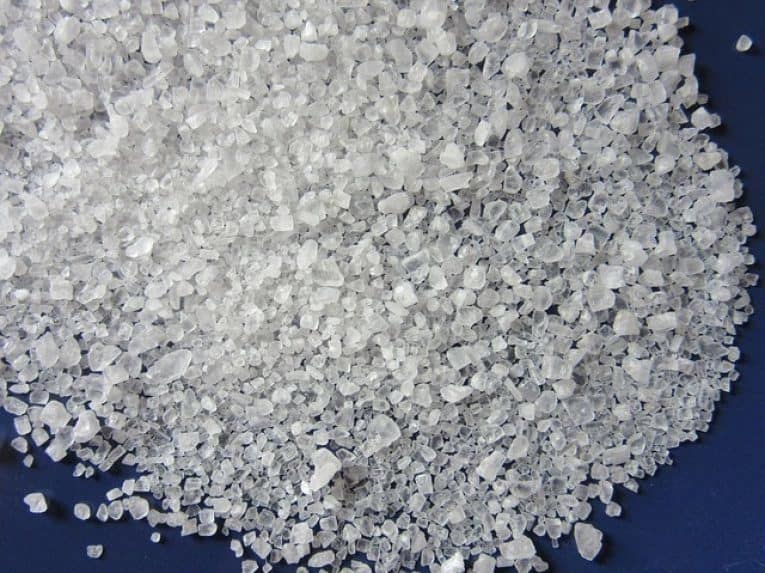
The Best Water Softener Salts For Those On A Budget
Aquasol Salt Tablets
Aquasol Salt tablets are made from sodium chloride. The tablets are versatile as they can be used in most small and medium-sized water softener units as well as dishwashers. It also shouldn’t cause any build-up of salt particles in your machine or salt bridges.
One 25 kg bag costs £14.98 ($20.30).
Our verdict: 5 out of 5 stars. Aquasol is a market leader and has rave reviews. It’s not clear if there are any water softener systems these should not be used in.
Granulite
Granulite’s water softener salt is made from high-purity PDV salt. The salt is crushed during the manufacturing process to create small salt granules.
It’s versatile as it can be used in most water softener systems, kitchen appliances and bathrooms.
One 25kg bag of Granulite costs £13.79 ($18.68)
Our verdict: 5 out of 5 stars. Granulite is one of the best water softener salt choices. It lasts for weeks and is still high quality despite the affordable price point.
HydroSoft
HydroSoft’s water softener salt is suitable for all tablet water softeners. The salt is very pure. The packaging is sturdy and easy to pour into the unit.
A 25kg bag costs £12.39 ($16.70).
Our rating: 4 of out 5 stars. HydroSoft is highly rated. Some customers find the salt bags difficult to handle – but the salt bag is usually sturdy and handles wear and tear without spilling. Hydrosoft is a fan favorite when it comes to salt-based water softeners with many customers sticking with them for decades and raving water softener salt reviews. It’s not clear if there are any specific units this should not be used in.
The Best Water Softener Salts For Universal Use
Water2buy
Water2buy crystal salt is made from 99.8% pure sodium chloride. The salt-based water softener is derived from sea salt. It dissolves quickly in order to keep the water clear and brine-free.
It’s also eco-conscious as the salt is produced by solar evaporation. Evaporated salt is considered to be better for the environment which will make the eco-conscious feel better. You shouldn’t have to worry about any health or safety risks with this solar salt for water softener either. This product meets European standard EN973A which means it does not contain heavy metals and is safe for human consumption.
A 25 kg bag costs £22.00 ($29.82).
Our rating: 5 out of 5 stars. Not only does this softener salt do exactly what it’s intended to, but it’s great value for money as it lasts one bag lasts weeks before needing to fully refill the brine tank, making it one of the best water softening salts.
HSD Himalayan Salt Direct
HSD Himalayan Salt Direct’s water softener salt is made from pure dried vacuum salt. It dissolves quickly in brine.
It’s suited to small and domestic water softeners but can also be used for industry, laundry ad hotel use.
A 25kg bag costs £15.99 ($21.67).
Find HSD Himalayan Salt Direct on Amazon.
Our rating: 5 out of 5 stars. HSD Himalayan Salt Direct is one of the best water softener salt options. Not only works wonders but it’s gentle on your water softener system too and is versatile.
Diamond Crystal Water Softener
Diamond Crystal Bright & Soft Series is made from 99.8% pure salt. The water softener salt pellets can be used in most appliances.
Find Diamond Cyrstal on Amazon.
Our rating: 3 out of 5 stars. The price of this water softener salt varies massively from store to store so customers might have to shop around for a good deal. This water softening salt does the job but many customers found the bags too heavy.
The Best Salt-Free Water Softeners Salts
Morton Salt
Morton water softener salt has an option for those who would rather use a different type of water softener salts. Morton salt sell potassium chloride water softener pellets which are 99% sodium-free. They decrease the buildup of hard water in pipes. The bag contains a plastic handle which makes it easier to pour into your unit than other brands.
An 18 kg (40lb) bag costs around $27.97
Our rating: 3 out of 5 stars. The biggest drawback of potassium chloride pellets is that it’s much more expensive and seems to run out a little quicker. Aside from that, it seems to work as well as its competitors at creating soft water. So, if you don’t need to monitor your sodium intake, your salt for water softeners does not have to come from Morton potassium chloride pellets.
Cargill Salt
Cargill salt potassium chloride pellets are made with up to 99.1% pure potassium chloride salt. The pellets should not harm your machine as they are low insoluble content. They’ve been hailed for improving the quality of water so much that clothes come out cleaner than ever from the washing machine.
Our rating: 3 out of 5 stars: Cargill Salt does the trick at creating soft water but like most potassium chloride pellets, it can be pricey which is offputting for some customers.
Water Softener Salt Buying Guide
What Is Water Softener Salt? How Does It Work?
When the water softener’s brine tank is replenished with softening salt, the resin beads fill up with sodium ions. As the hard water moves through the unit, the calcium and magnesium ions are attracted to the resin beads. This process then exchanges the sodium ions for the hard water ions already present and makes soft water.
Why Use Water Softener Salts?
Water hardness is based on the amount of dissolved calcium and magnesium in the water. The more calcium and magnesium, the harder the water. Many people find hard water to be of poor quality.
Soft water has lots of benefits. Not only does soft water taste nicer, but you might notice less limescale building up on your taps and other household appliances. Lots of people find that their hair and skin are much better when they shower or bathe using soft water, compared to hard water. So, finding the best water softener salt has lots of benefits.
What Are The Types Of Water Softener Salt?
Not all water softener salt is the same. You might find yourself confused in the store wondering what the difference between salt pellets or salt crystals is when looking for softening salt. The main difference is the shape.
Salt-based water softeners are designed to use one or several of the three main types of softener salt that are readily available for purchase. These include:
- Salt Pellets : Salt pellets are the most common type of softener salt and are also the cheapest to buy. As the name suggests, these pellets are periodically added to your water softener’s tank to facilitate the water softening process.
- Salt Crystals: Salt crystals are another form of softener salt and are another common option for home water softening systems. These crystals are much smaller in size than pellets but facilitate the same process.
- Block Salt: The third option is known as block salt and is the least common option of all the softener salts. We never recommend the use of block salt unless your brine tank has been adjusted to ensure maximum saturation of each piece of block salt.
What’s This About Salt Sub Categories?
Within each main category of salt, there are also several subcategories that relate to the type and purity of the salt used to produce each product. These consist of;
- Evaporated: Evaporated salt has the highest purity level (99.9%) of any type of salt which also makes it the most expensive type of salt pellet. A high level of salt purity is always recommended to assist in increasing efficiency and reducing the prevalence of maintenance problems.
- Solar: Solar salt is sold in both pellet and crystal form and is produced by evaporating sea salt. Solar salt is a great option and makes a suitable alternative if evaporated salt is too expensive – but do note that purity levels are slightly lower (99.6%) which may result in issues if you suffer from particularly hard water.
- Rock Salt: Rock salt takes the appearance of small pebbles and is usually the more economical option, costing less than its purer counterparts. Unfortunately, rock salt also contains a greater quantity of calcium which means that it won’t dissolve as well in water which will eventually lead to maintenance issues.
Why Should You Care About Salt Purity?
Salt purity is the single most important factor in determining how well your water softener is going to perform in addition to minimizing the propensity for expensive or labor-intensive maintenance problems.
The higher the purity levels, the more water-soluble each type of salt is. Essentially, purer salt will reduce bridging (the formation of solid masses of salt) as well as prevent the build-up of sludge in your brine tank.
Which Is The Best Type Of Water Softener Salt?
The best water softener salt choice depends on your water softening systems and personal requirements. If you don’t have a particularly high amount of water usage, salt crystal salt is a better choice. They’re also better suited to two-part water softening machines.
If you use a lot of water, salt pellets are the best water softener salt. They’re better for all-in-one-softening. This is because they can prevent bridging in the water softener’s brine tank and make sure that bridging doesn’t block the water flow.
It should go without saying but table salt, food-grade salt – or any salt you might find in your pantry like pink Himalayan salt – should not be used in a water softening system. Water softener salt is not the same as regular salt so this won’t work.
What About Potassium Chloride?
Potassium chloride is pretty much just as effective as other water softeners during the ion exchange process.
One of the reasons people opt for those water softeners in the first place is that they have a specific machine – like a septic tank – or need to carefully manage their sodium intake. If you have a specific medical condition where it’s important to manage your salt intake, then potassium chloride water softeners are the best water softener salt for you. However, generally speaking, the impact it has on dietary sodium levels is negligible.
Salt is actually an important part of hydration. Sodium (as well as minerals like chloride or potassium) is an electrolyte. These help you to stay hydrated longer than just plain water so using salt to create soft water is not bad for your health.
Potassium chlorine pellets – which are sometimes marketed as “non-salt” or a salt-free water softener still technically count a water softener salt.
Potassium chloride softeners tend to be more pricy. You also need to buy them more often because it’s not as effective as pure salt these water softeners are not as popular. Some people find that potassium chlorine works better on septic tanks.
It should be noted that potassium chloride is more expensive than any of the aforementioned salts and can also be more difficult to source. In addition, making the switch to potassium chloride will require you to make adjustments to your water softener to account for potassium’s differing properties.
In Conclusion
Our favored softener salt is evaporated salt. It is generally more expensive, but this is only one factor that should be taken into account when making a decision.
More importantly, your water softener will perform better, use less salt, and require less maintenance when utilizing salt with such a high level of purity.
If your water softener calls for a specific type of salt (Culligan recommends solar salt for their products), we recommend purchasing the highest quality of salt within that category.


